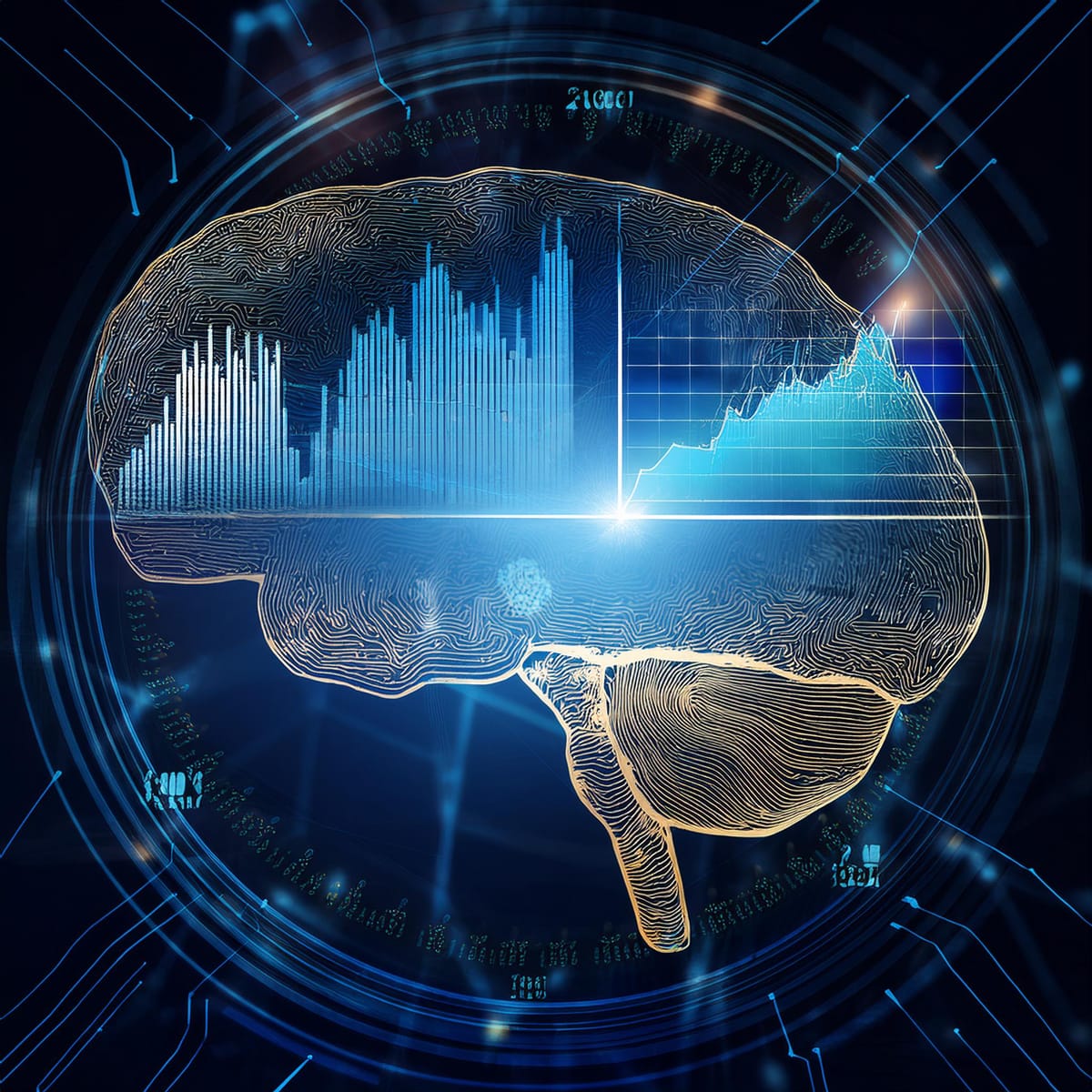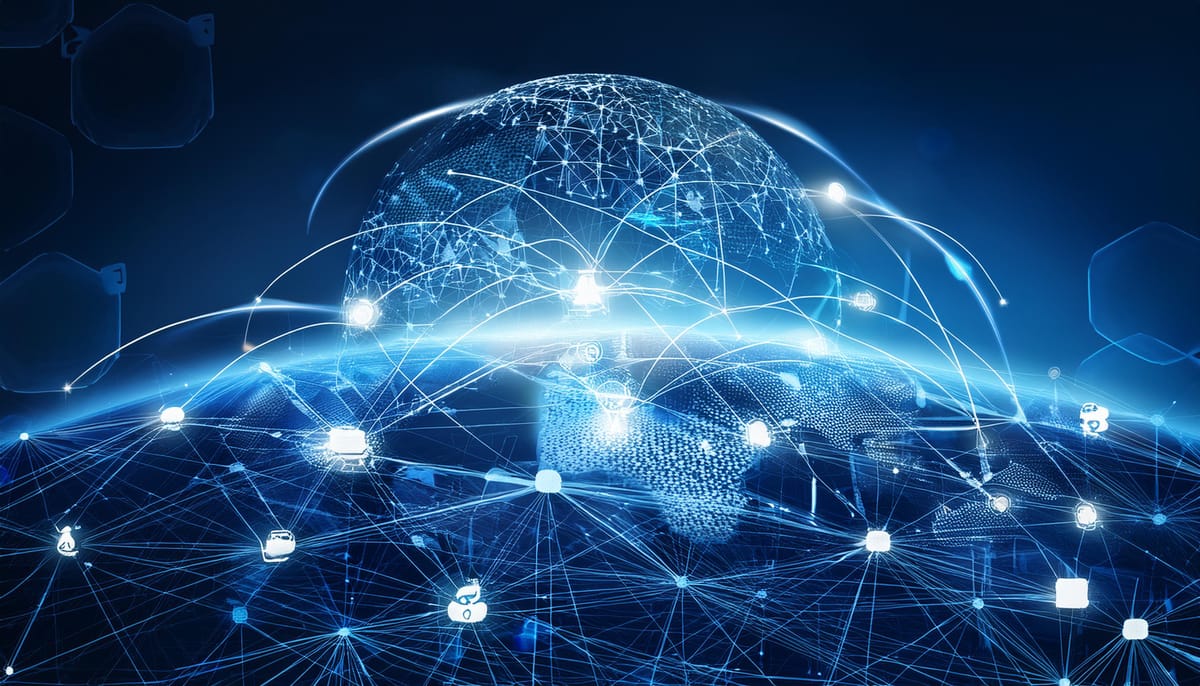In today's rapidly evolving business landscape, digital transformation has become a fundamental force reshaping industries worldwide. From the rise of fintech to the advent of smart manufacturing, organizations are leveraging cutting-edge technologies to revolutionize their operations, enhance customer experiences, and create new value propositions. As we explore the transformative power of digitalization, we'll uncover how various sectors are adapting to this new paradigm and the profound impacts it's having on business models, operational efficiency, and competitive dynamics.
Fintech: Revolutionizing Financial Services
The financial services sector stands at the forefront of digital transformation, with fintech innovations disrupting traditional banking models and reshaping how we manage, invest, and transfer money. Digital banking has become the new norm, with mobile apps, AI-powered chatbots, and instant loan approvals transforming customer interactions. The rise of neobanks - digital-only institutions operating without physical branches - is forcing traditional banks to accelerate their digital transformation efforts to remain competitive.
These innovations are not just improving customer experience; they're also driving significant cost savings for financial institutions. For instance, a study by Juniper Research found that chatbots will be responsible for cost savings of over $8 billion annually by 2022, up from $20 million in 2017. This dramatic increase highlights the rapid adoption and effectiveness of AI-powered customer service solutions in the banking sector.
Blockchain technology and cryptocurrencies are challenging the foundations of financial systems, enabling secure, transparent, and decentralized transactions. These innovations are paving the way for new forms of value exchange and asset management, with potential applications in supply chain finance, cross-border payments, and smart contracts. The impact of blockchain extends beyond cryptocurrencies, with the technology being explored for use in areas such as identity verification and regulatory compliance.

Explore the impact of blockchain on traditional financial services
Artificial intelligence and machine learning are revolutionizing various aspects of the financial industry, from risk assessment and credit scoring to fraud detection and algorithmic trading. These technologies enable financial institutions to process vast amounts of data quickly and accurately, leading to more informed decision-making and improved customer experiences. For example, JP Morgan's Contract Intelligence (COiN) platform uses machine learning to analyze legal documents and extract important data points and clauses, completing in seconds what previously took lawyers 360,000 hours.
Industry 4.0: The Smart Manufacturing Revolution
The manufacturing sector is undergoing a profound transformation, often referred to as Industry 4.0 or the Fourth Industrial Revolution. This digital metamorphosis is characterized by the integration of advanced technologies such as the Internet of Things (IoT), artificial intelligence, and robotics into manufacturing processes. The global smart manufacturing market size is projected to grow from $214.7 billion in 2020 to $384.8 billion by 2025, at a CAGR of 12.4%.
IoT has enabled the creation of "smart factories" where machines and systems are interconnected and constantly communicating. This connectivity allows for real-time monitoring of equipment performance and predictive maintenance, significantly reducing downtime and maintenance costs. The implementation of IoT in manufacturing goes beyond mere efficiency gains. It's enabling new business models, such as Product-as-a-Service (PaaS), where manufacturers can offer ongoing services and support based on real-time data from connected products.
Artificial intelligence and robotics are transforming production lines, enabling greater precision, consistency, and flexibility in manufacturing processes. AI-powered quality control systems can detect defects with superhuman accuracy, while collaborative robots (cobots) work alongside human workers to enhance productivity and safety. The integration of AI and robotics is not just about automation – it's about creating smarter, more adaptive manufacturing systems that can respond to changing market demands and production requirements in real-time.

Discover how AI is revolutionizing product development and maintenance
Digital twin technology is revolutionizing product design and manufacturing processes. By creating virtual replicas of physical products or systems, manufacturers can simulate and optimize performance before investing in physical production. This approach enables faster product development cycles, reduced prototyping costs, improved product quality, and enhanced maintenance capabilities. Companies like Siemens are leveraging digital twin technology to optimize wind farms, improving energy output by up to 20% and reducing maintenance costs.
Healthcare's Digital Transformation
The healthcare industry is embracing digital transformation to improve patient outcomes, enhance accessibility, and reduce costs. From telemedicine to AI-assisted diagnostics, technology is reshaping every aspect of healthcare delivery. The global digital health market is expected to reach $509.2 billion by 2025, growing at a CAGR of 27.7% from 2019 to 2025.
Telemedicine and remote patient monitoring have seen accelerated adoption, particularly in the wake of the COVID-19 pandemic. These technologies are improving access to healthcare services and enabling proactive, personalized care. The impact of telemedicine extends beyond convenience. It's helping to address healthcare disparities by providing access to specialist care in rural and underserved areas. For instance, the University of Mississippi Medical Center's telehealth program has significantly improved care for rural patients with chronic conditions like diabetes.
AI algorithms are making significant strides in medical diagnosis and treatment planning, analyzing medical images, genetic data, and patient histories to assist healthcare professionals in making more accurate diagnoses. While AI is not replacing human healthcare professionals, it is augmenting their capabilities and enabling them to make more informed decisions. For example, a study published in Nature found that an AI system was able to detect breast cancer in mammograms with greater accuracy than expert radiologists.
Blockchain technology has the potential to revolutionize health data management by providing a secure, decentralized system for storing and sharing patient information. This could lead to improved interoperability between healthcare systems, enhanced data privacy and security, streamlined clinical trials and research, and more efficient claims processing and billing. As healthcare organizations grapple with the challenges of data security and interoperability, blockchain solutions are likely to play an increasingly important role in the industry's digital transformation.

Discover how blockchain is transforming healthcare data management
Retail's Digital Makeover
The retail industry has been profoundly impacted by digital transformation, with e-commerce giants reshaping consumer expectations and traditional retailers adapting to create seamless, omnichannel experiences. The global e-commerce market size is expected to reach $16.2 trillion by 2027, growing at a CAGR of 22.9% from 2020 to 2027.
Augmented reality (AR) is bridging the gap between online and offline shopping experiences. Virtual try-on technologies allow customers to visualize products in their own space or on their own bodies, reducing uncertainty in online purchases and enhancing the overall shopping experience. Companies like IKEA and Sephora have successfully implemented AR technologies, allowing customers to visualize furniture in their homes or try on makeup virtually. These innovations not only improve the customer experience but also drive sales and reduce return rates.
AI-powered personalization and recommendation systems are enabling retailers to offer highly tailored shopping experiences by analyzing customer data and behavior patterns. These efforts extend beyond product recommendations to include dynamic pricing strategies, personalized marketing campaigns, customized loyalty programs, and tailored user interfaces. Amazon's recommendation engine is a prime example of the power of AI in retail, with the company attributing 35% of its revenue to its personalized product recommendations.
The Internet of Things is transforming retail operations, particularly in inventory management. Smart shelves equipped with RFID tags and weight sensors can track inventory levels in real-time, automatically triggering restocking orders and reducing out-of-stock incidents. Walmart's use of RFID technology has improved its inventory accuracy to 99.9%, reducing out-of-stock incidents and improving customer satisfaction.

Explore how IoT is revolutionizing retail operations and customer experiences
Challenges and Considerations in Digital Transformation
While the benefits of digital transformation are clear, organizations across industries face significant challenges in implementing and scaling their digital initiatives. Data privacy and security concerns have become paramount as businesses collect and process increasing amounts of data. Organizations must navigate complex regulatory landscapes while also protecting against increasingly sophisticated cyber threats.
The rapid pace of technological change has created a significant skills gap in many industries. Organizations are struggling to find and retain talent with the necessary digital skills to drive their transformation efforts. To address this challenge, companies are investing in upskilling and reskilling programs, partnering with educational institutions, and fostering a culture of continuous learning and innovation.
Many established organizations are grappling with the challenge of integrating new technologies with legacy systems. This technical debt can slow down digital transformation efforts and make it difficult to realize the full benefits of new technologies. Strategies for addressing this challenge include gradual migration to cloud-based systems, adoption of microservices architectures, and strategic modernization of core systems.
The Future of Digital Transformation
As we look to the future, several emerging technologies are poised to drive the next wave of digital transformation across industries. The rollout of 5G networks and advances in edge computing will enable faster, more reliable connectivity and real-time processing of data. This will open up new possibilities for IoT applications, augmented reality experiences, and autonomous systems across various industries.
Quantum computing, although still in its early stages, has the potential to revolutionize industries such as finance, healthcare, and logistics by solving complex problems that are beyond the capabilities of classical computers. As AI systems become more sophisticated, we may see the emergence of artificial general intelligence, leading to unprecedented advances in scientific research, problem-solving, and decision-making across all industries.
The convergence of augmented reality (AR), virtual reality (VR), and mixed reality (MR) technologies will create immersive experiences that blur the lines between physical and digital worlds. This will have profound implications for industries such as education, healthcare, manufacturing, and retail.
As environmental concerns become increasingly pressing, we can expect to see a greater focus on sustainable technologies and green digital transformation. This may include energy-efficient computing and data centers, AI-powered smart grids for optimizing energy distribution, and IoT solutions for environmental monitoring and conservation.
Digital transformation is not just about adopting new technologies – it's about fundamentally rethinking how businesses operate and create value in the digital age. Organizations that successfully navigate this digital landscape will be those that embrace a culture of innovation, invest in the right technologies and talent, and remain agile in the face of rapid change. As we move forward, the lines between industries will continue to blur, creating new opportunities for collaboration and disruption.
The widespread adoption of digital technologies is reshaping the job market, creating new roles while rendering others obsolete. This shift necessitates a focus on lifelong learning and skills development, addressing potential job displacement through reskilling programs, and adapting education systems to prepare students for the digital economy.
As more services and opportunities move online, ensuring digital inclusion becomes crucial. This involves bridging the digital divide in underserved communities, developing accessible technologies for people with disabilities, and promoting digital literacy across all age groups.
As we stand on the cusp of a new digital era, the pace of innovation shows no signs of slowing. For businesses and individuals alike, the key to thriving in this digital future lies in adaptability, continuous learning, and a willingness to embrace change. Those who can harness the power of digital transformation will be well-positioned to solve complex problems, create new value, and shape the world of tomorrow.





